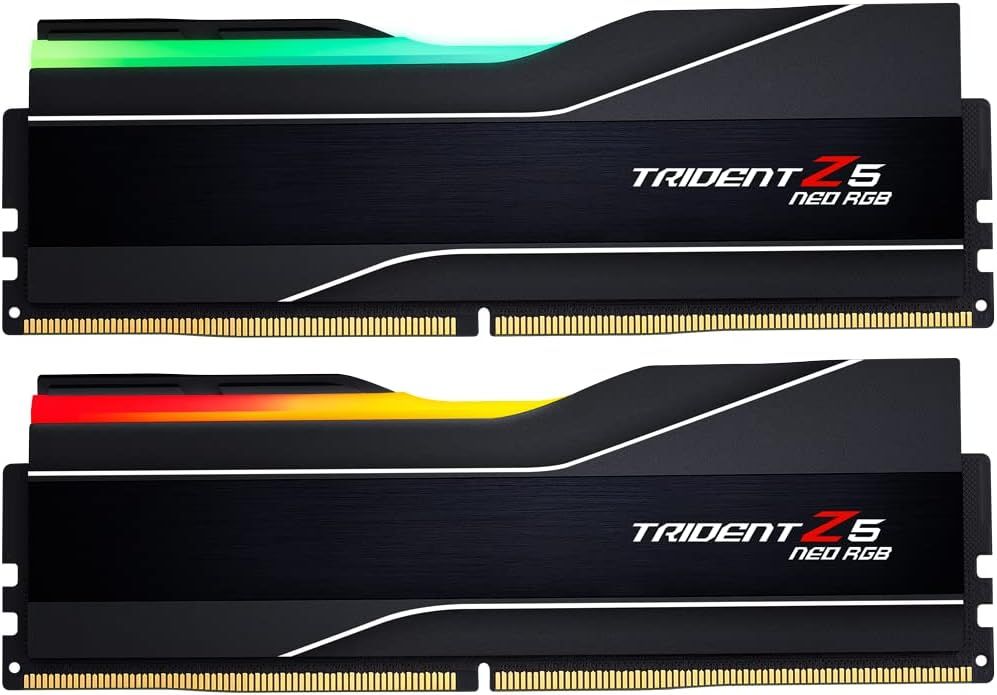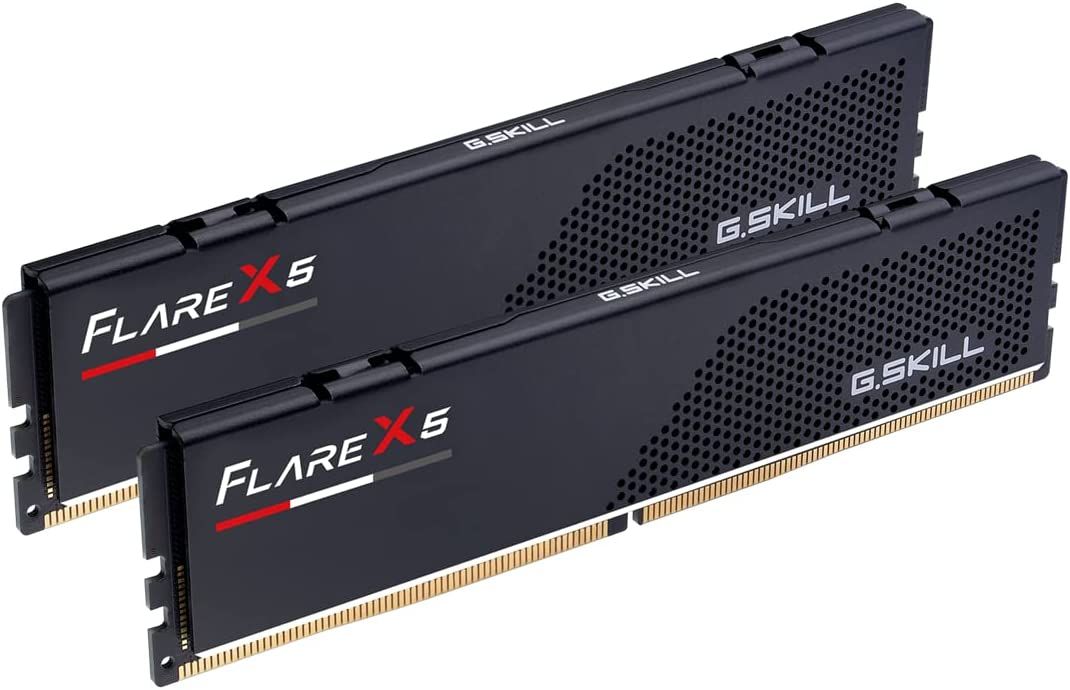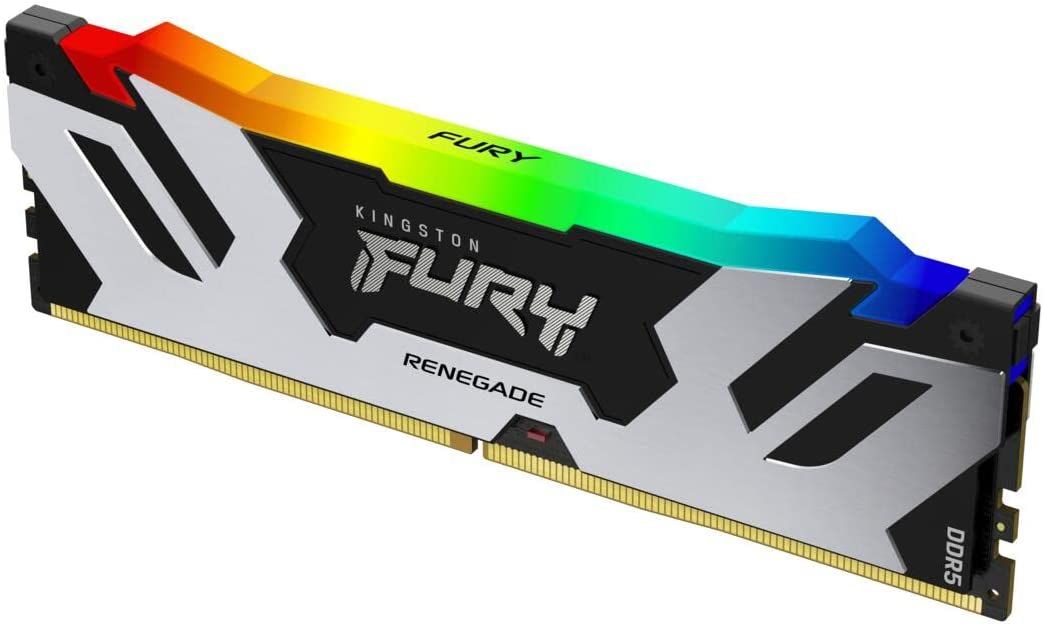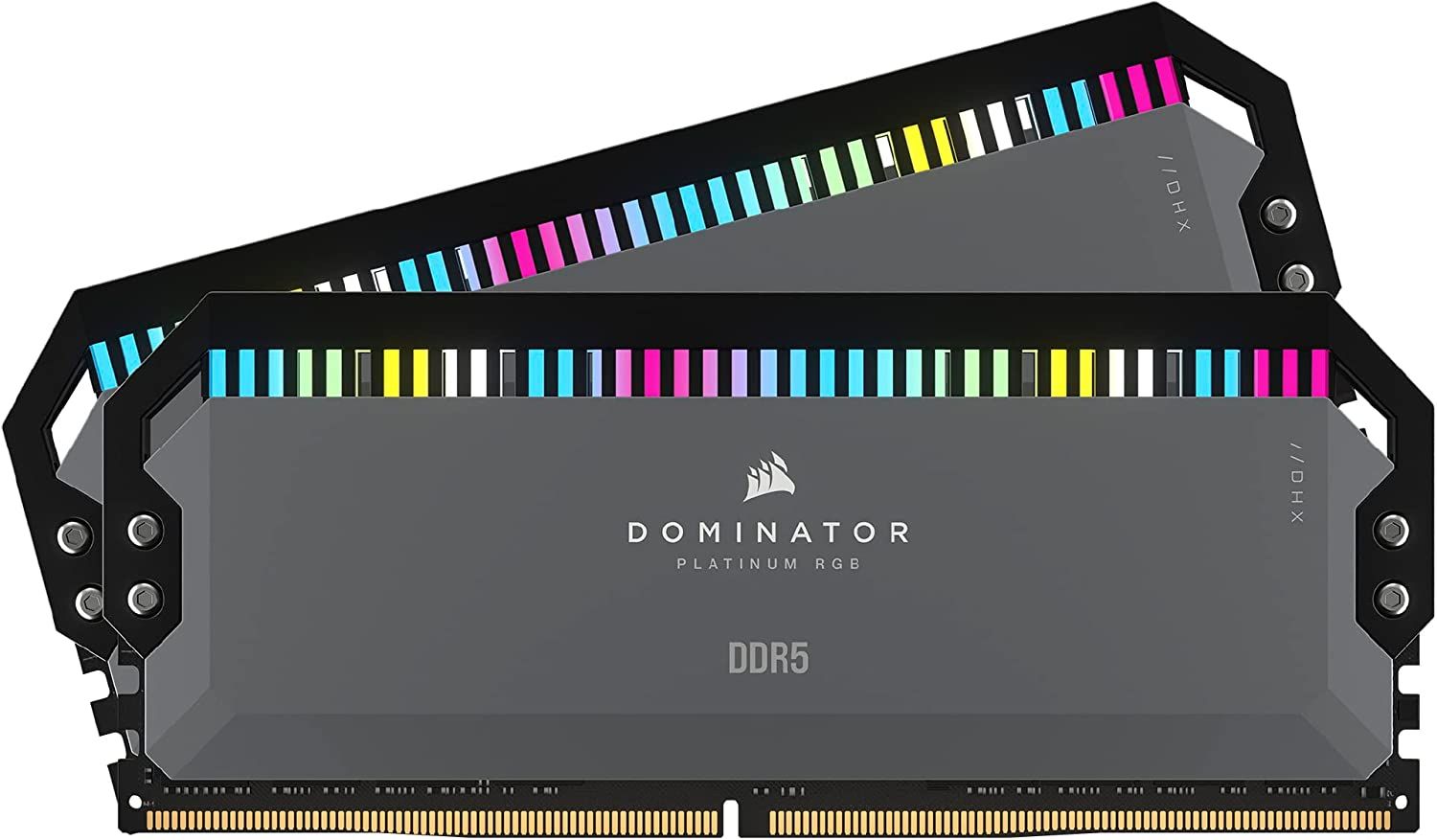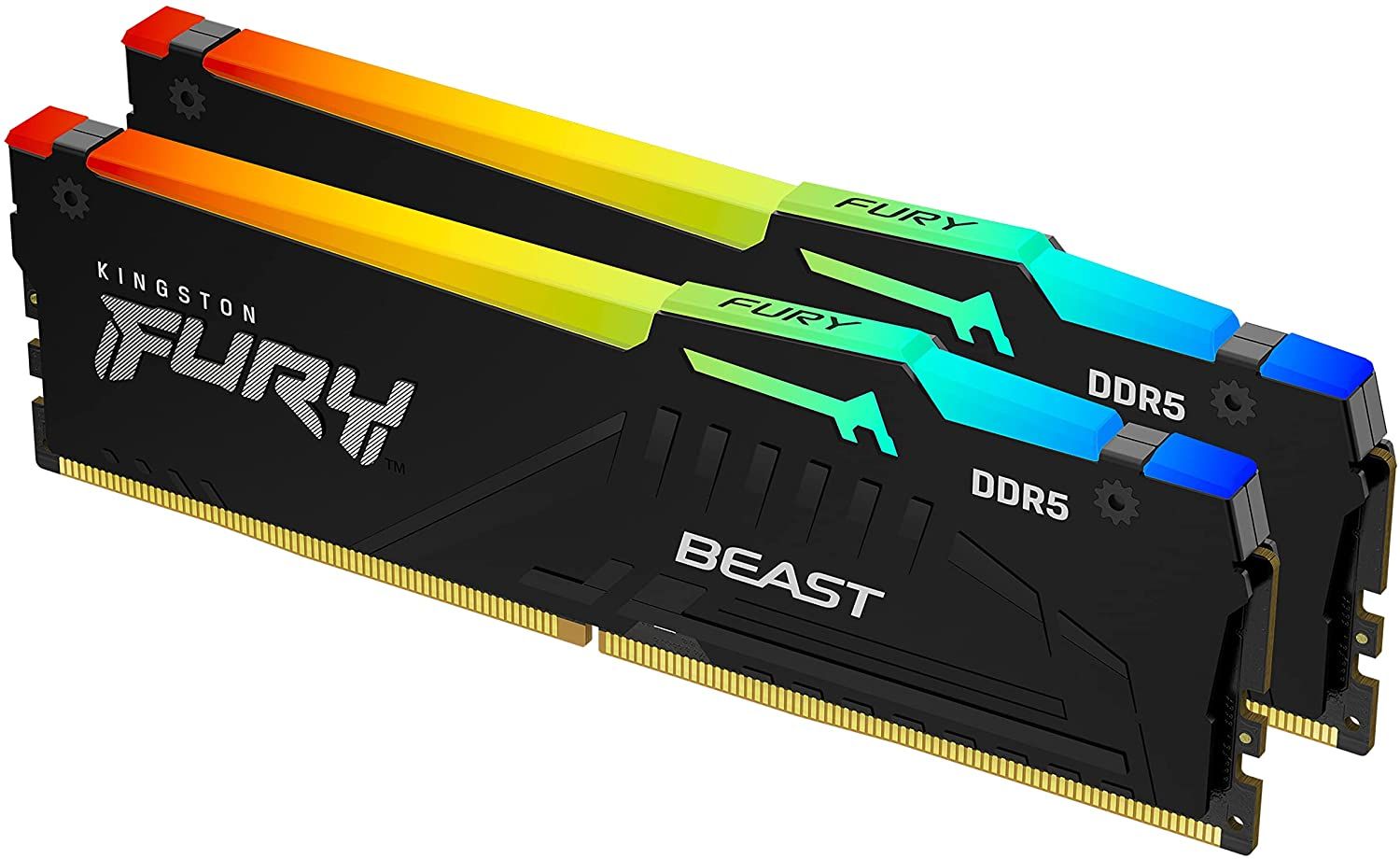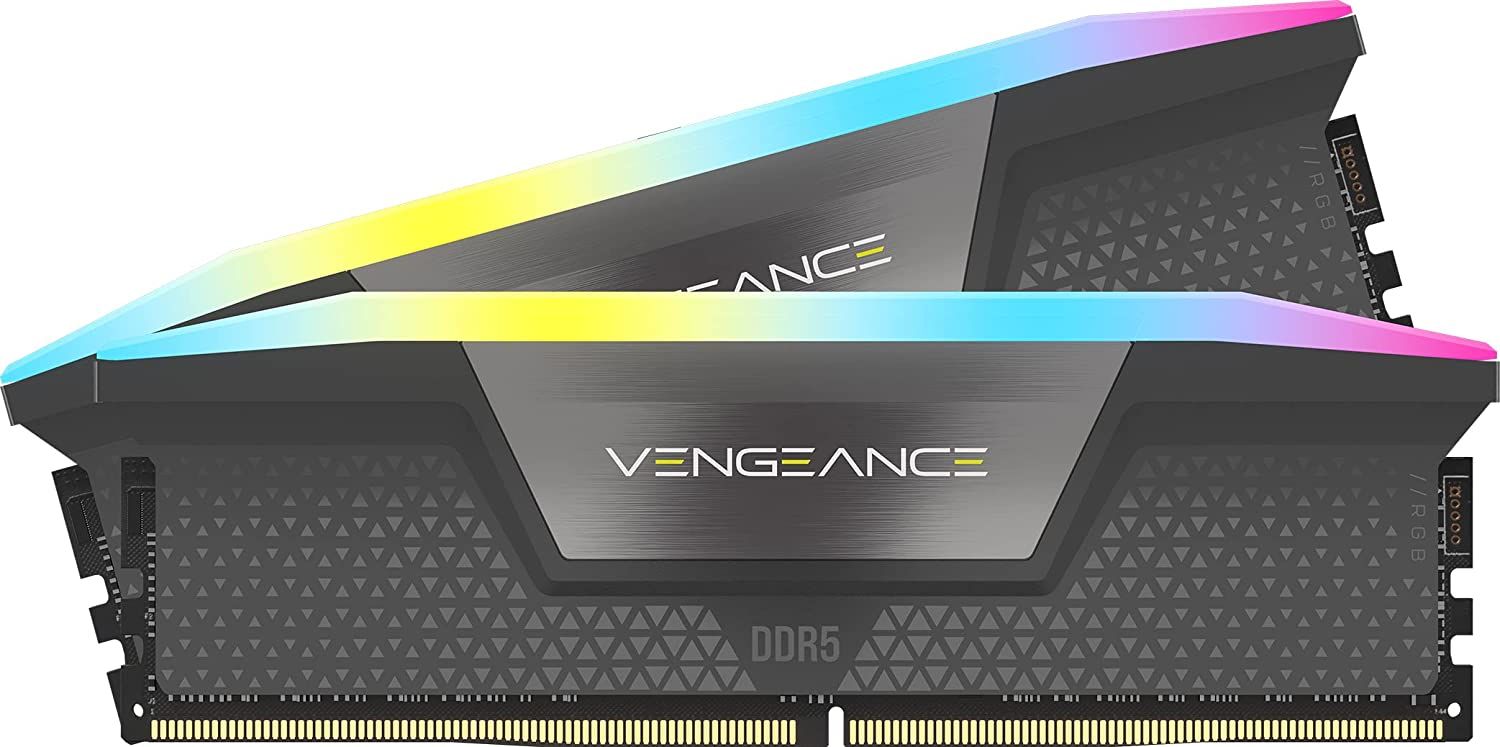With the Ryzen 7 7800X3D firmly entrenched as the fastest gaming CPU while being available at a discount, users are finally looking at an affordable next-generation AMD X3D-enabled experience. This generation, however, does see AMD switching out sockets altogether (for a newer AM5 socket) and using DDR5 memory as a newer, singular platform requirement, which requires new users and AMD veterans alike to switch out both their motherboards and memory for the latest versions available to maximize their gains.
To allow users to have a more uniform experience and get the expected levels of performance, AMD has come up with its version of higher-clocked memory standards that deliver tighter timings than Intel's requirements to ensure better performance on its DDR5-based motherboards and CPUs. Unlike Intel's XMP standards, these are open-source and publicly available for testing modules and their compatibility with EXPO requirements and certification.
AMD's EXPO: What Makes It Good To Have?
AMD's EXPO, also known as AMD's Extended Profiles for Overclocking, is AMD's new terminology for the memory profiles it assigns to RAM that runs optimized for its hardware at specific memory timings and clocks. This allows AMD to offer both better voltage control than current-generation XMP profiles and custom profiles based on what it determines are the needs of its processors at certain frequencies.
Intel's Extreme Memory Profile (XMP) has been previously used as a benchmark to allow for AMD-focused DOCP profiles. This, however, does not extend to DDR5, where AMD is moving forward with its official certification process. There is a separate tiered set of AMD-specific RAM being pushed by multiple memory manufacturers that cater specifically to AMD's AM5 platform.
AMD's EXPO is exclusive to DDR5 and essentially replaces Intel's XMP profiles, which were supplanted by ASUS's DOCP profiles when AMD's AM4-based CPUs needed a similar option for DDR4 RAM in the past. Having EXPO RAM essentially means that users are guaranteed a better, trouble-free experience, running RAM modules at tested overclocked frequencies and timings. Thanks to AMD's easy-to-use self-certification tools, it is expected that an increasing number of DDR5 RAM modules in the coming days will have certified EXPO profiles by default.
While some enthusiasts and overclockers might not find EXPO of much use as they attempt to eke out higher clocks or better performance from their existing DRAM modules, for most users, it is a handy baseline of what a RAM kit or stick can do out of the box and a great way to determine the limitations of memory modules in terms of potential performance down the line. It is essentially a more AMD-centric version of XMP and makes it easy for users to know what kind of memory modules they are buying.
Picking The Best Gaming RAM For The Ryzen 7 7800X3D
Picking the best gaming memory for the Ryzen 7 7800X3D is a relatively simple task, but it can seem overwhelming simply because of the sheer number of choices currently on offer to end users. The team at Game ZXC has picked some of the best choices based on the following considerations:
Clock Speeds: Memory clock speeds dictate the amount of data that can be transmitted over any period on DDR5 memory. While the Ryzen 7 7800X3D is less sensitive to memory needs compared to most Ryzen 7000 series CPUs thanks to its large L3 cache, it does still retain performance gains from higher memory clock speeds than some of its competing Intel processor alternatives.
Latency: Lower latency memory generally allows AMD's Zen 4 cores to access data faster. This in turn means that lower latency memory delivers more favorable performance across the board for AMD CPUs in general because of how the Infinity Fabric design works. An ideal EXPO memory kit has the lowest latency possible to allow faster gaming performance even as clock speed performance gains cap out at around 6400 MHz for AMD's Ryzen 7 7800X3D.
Capacity: Modern games require ever-increasing amounts of memory. While 8GB or 16GB of RAM previously sufficed for high-end gaming needs, many titles currently demand as much as 24GB or 32GB of memory to perform optimally. Users should aim for DDR5 memory kits that meet or exceed the current capacity requirements for the games they currently play or intend to play soon.
AMD EXPO Compatibility: For gamers looking for a one-button tweak to their RAM kit, AMD's EXPO profiles offer the equivalent of Intel's XMP RAM profiles. This allows users to know what particular overclocks and memory profiles work on their particular set of memory while offering an AMD CPU-centric tweaked version of the RAM's profile as a result.
AMD's previous AM4-based CPUs favor moderate to high clocks and lower latency. AM5 offerings seem to follow suit, despite AMD AGESA firmware updates that allow for AMD's higher-end CPUs and chipsets to push clocks to 8200 MHz and beyond. However, most AMD-centric EXPO-certified kits tend to sit under 7000 MHz currently.
The Best Gaming RAM For AMD Ryzen 7 7800X3D
The G.Skill Trident Z5 NEO RGB 64GB Kit is one of the best in the business. While it forgoes the RGB lighting that defines most of the DDR5 market offerings, it offers excellent, low-latency memory that should meet and exceed AMD's EXPO specifications. With 32GB per memory module, users can pack as much as 64GB in a singular kit for a total of 128 GB if using four DIMMs, and the Trident Z Neo RGB offers exactly that here.
The G.Skill Trident Z5 NEO RGB 64GB Kit is ideal for power users and gamers requiring significant amounts of RAM.
With some of the tightest timings in the business, these CL30 memory modules are designed for high-end overclocking and long-term use thanks to their extensive lifetime warranty in play. For those not needing the mammoth 64GB of memory Game ZXC currently recommends, G.Skill has well-priced 32GB DDR5 kit alternatives in both vanilla and a slightly more expensive RGB version of the same. They come with matching latency and clock speeds to boot, which makes them easy to swap.

The Best Motherboards To Pair With The AMD Ryzen 7 7800X3D
Here are some of the best motherboards to consider pairing with the AMD Ryzen 7 7800X3D.
With some of the tightest timings on offer thanks to its CL30 latency and AMD's sweet spot 6000MHz latency, the G-Skill Z5 NEO RGB remains Game ZXC's favorite by far for DDR5 memory when considering the Ryzen 7 7800X3D's unique value proposition to gamers as the fastest gaming CPU out there. Plus, the lower and relatively stable prices do help make it a more viable purchase.
The G.Skill Flare X5 Series 6000MHz 32GB is an excellent AMD-optimized DDR5 kit that should work well with users' AMD Ryzen 7 7800X3D upgrade without costing them an arm and a leg, unlike some of its competitors. While it skips RGB altogether for a more generic look, this means that it can be used in PCs with more subtle RGB effects than in the competition. It also supports AMD's EXPO profiles. This means that it comes tweaked out of the box to support AMD's stated sweet spot of 6000MHz clock speed at decent CAS latency.
The G.Skill Flare X5 Series 6000MHz 32GB is ideal for budget gamers and minimalist builds.
While the Flare X5 kit isn't the cheapest DDR5 memory that money can buy, even as prices exhibit a downward trend, it is a capable kit that is optimized for AMD's Ryzen 7000 series lineup. A user's Ryzen 7 7800X3D upgrade is expected to benefit greatly from using AMD's own EXPO profiles versus DDR5 Ram's default clocks.
The Flare X5 kit has seen an extensive price cut that only further cements it as an excellent alternate, budget-oriented upgrade that gamers should consider. It also comes in a tighter timing trim that users can benefit from at the same cost in addition to a higher capacity alternative for gamers and professionals looking for more from an unassuming RAM offering in 2024.
The Kingston Fury Renegade RGB 32GB 7200MHz DDR5 Kit is one of the fastest that money can buy and can clock up to 7200MHz using Intel's XMP profiles. Similar performance should be possible to emulate for the 7000 series AMD processors too, and the Fury Renegade RGB RAM clocks in at an impressive 7200 MHz at an impressive CAS latency of CL38.
The Kingston Fury Renegade RGB 32GB 7200MHz DDR5 Kit is ideal for enthusiast modders and overclockers.
The Fury Renegade RGB modules also look quite impressive compared to the competition. While it does not have a built-in EXPO profile, most overclockers tend to go about this manually anyway, making this a moot point. Excellent looks, overclockability, and decent CAS latency at 7200MHz make the Fury Renegade modules an interesting but solid choice for those looking to eke out a little more out of their Ryzen 7 7800X3D-based rig.
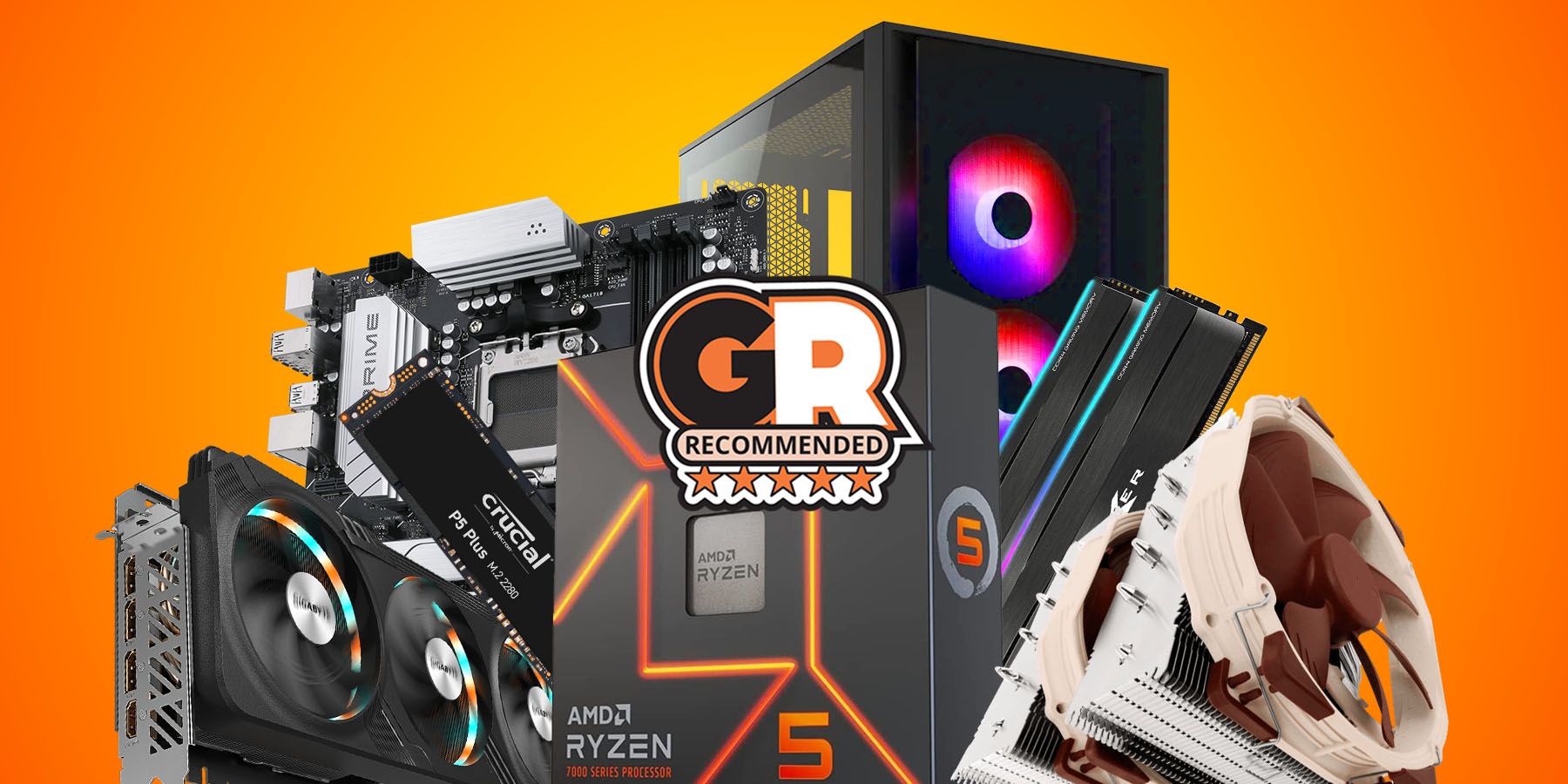
The Best Gaming PC Builds Under $2000
Need to build a PC on a budget? Here are the best builds you can make yourself for under $2000!
The Kingston Fury Renegade RGB 32GB 7200MHz DDR5 kit has held onto its price in a market that has generally seen price cuts and higher-clocked memory permeate the industry. This makes it a tougher recommendation beyond its aesthetic appeal and brand value. The competition is breathing down its neck with 8000MHz RAM modules a common sight slightly above its price range, making it a slightly harder bargain to reason with until its prices get a major revision.
The Corsair Dominator Platinum RGB DDR5 32GB 6000MHz is some of the best-looking RAM that money can buy when it comes to DDR5 modules. It offers a kit that is both AMD EXPO compatible and clocked to just the right speeds at 6000MHz with acceptable CAS latency (CL36), making for an excellent (if somewhat premium) package.
One of the chief new features of the Corsair memory modules this generation is the ability to add custom EXPO and XMP profiles, which could allow tweakers to aim for better overclocks on their memory with an overclocking-friendly design that the Dominator is somewhat famous for. While the EXPO-enabled modules are not the fastest or the best value when it comes to DDR5 RAM modules, they look and feel like the most premium DDR5 RAM we have come across. They are an excellent buy for those looking for decent performance with a focus on aesthetics.
The Corsair Dominator Platinum RGB DDR5 32GB 6000MHz is ideal for RGB enthusiasts and aesthetic builds.
With better pricing on offer now and some of the best aesthetics for consumer-grade memory, including a unique but polished RGB look as well as some of the most well-constructed heat sinks we have personally seen on a desktop memory module, the Corsair Dominator Platinum RGB DDR5 kit is not getting off our list anytime soon as the best-looking DDR5 memory that also offers excellent performance when paired with the Ryzen 7 7800X3D.
While Kingston itself offers higher-clocked RAM modules for Intel-based processors and chipsets, it's much more challenging to push memory down to AMD's often tightly regulated EXPO clocks and latency. This makes the Fury Beast some of the best AMD-compatible memory modules currently available in the market. It also doubles as one of the best overclockable DDR5 AMD-specific gaming memory.
The Fury Beast has some of the most prolific RGB lighting patterns in the industry. While its RGB software can be a bit buggy at times, it does allow for comprehensive control over the RAM module's lighting pattern, even as the Fury kits offer immense overclocking potential to go hand in hand with excellent thermals at higher clocks.
The Kingston Fury Beast RGB 32GB 6000MHz kit is ideal for overclocking.
All in all, this is a capable, no-nonsense AMD-compatible RGB RAM kit that one can consider if having EXPO profiles is necessary. It's also good if you do not want to rely on or have time to invest in tweaking your RAM to maximize your overclocking gains from an otherwise very overclocking-friendly RAM kit.

The Best Gaming RAM For PCs In 2024
Need more memory for your gaming desktop? Here are our picks for the best you can buy right now!
The Kingston Fury Beast RGB 32GB 6000MHz kit is an ideal upgrade for users looking to overclock their memory with more flexibility than some of its competitors and excellent RGB. While small price cuts have made inroads for Kingston's offerings, it does face stiff pricing competition from slightly faster memory competing in the same price range of late.
The Corsair Vengeance RGB DDR5 32GB 6000MHz CL36 kit is a capable AMD-certified set of memory modules that offers a relatively tight CAS latency to some of its competition. It also offers excellent compatibility thanks to many motherboard vendors checking and rating these for various QVLs (Qualified Vendor Lists) for their respective AMD offerings.
With a built-in AMD EXPO profile and excellent control over the preset profiles, you can add or remove the RAM modules in addition to fine-grained control over the kit's RGB lighting. Not only does the Vengeance RGB arguably look better than the competition, but it also has the customization enthusiasts might demand, both in terms of looks and overclockability.
The Corsair Vengeance RGB DDR5 32GB 6000MHz CL36 kit is ideal for budget no-nonsense gamers wanting RGB RAM.
With a significant price cut, Corsair Vengeance RGB DDR5 32GB 6000MHz CL36 kit looks considerably more appealing than it did a few months ago while retaining its position as the best alternate RGB DDR5 memory for the Ryzen 7 7800X3D (and potentially any subsequent X3D-based Ryzen 7000 series launches). Plus, it continues to be market-competitive in pricing and an attractive alternative to most of its direct competition.
Conclusion
Gaming memory is only a part of the discussion when you are looking to build your gaming PC. The Ryzen 7 7800X3D is expected to be here for a long time as a PC gaming favorite, given its unique price compared to performance. You would also need adequate cooling to take care of the processor (which does not ship with a thermal solution by default) to ensure it delivers unthrottled, sustained performance.
Part of what will enable the Ryzen 7 7800X3D to shine will be an excellent motherboard that can handle the processor's power needs. This will allow gamers, creators, and enthusiasts to take advantage of the latest in tech with what is a formidable gaming processor in 2024.
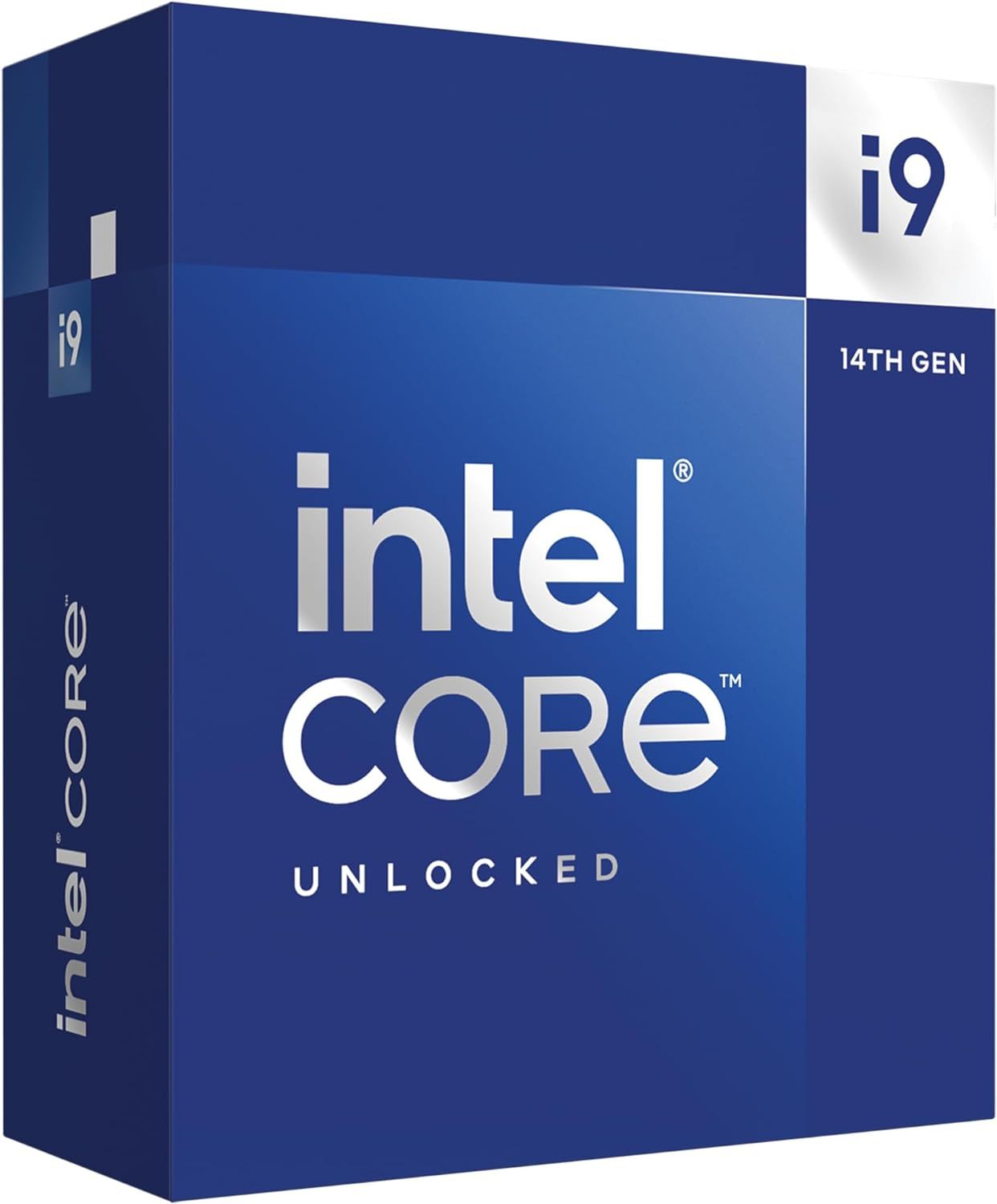
Intel Core i9 14900K Vs AMD Ryzen 7 7800X3D: Is The Refresh Enough?
How does Intel's fastest CPU to date stack up against AMD's best gaming CPU post-launch?
FAQ
Q: Is it worth switching to DDR5 memory?
DDR5 memory is historically cheaper now than it has ever been since its launch. The same is true for most mainstream DDR4 offerings as well as NAND flash in general, with SSDs receiving numerous price cuts as we deal with cheaper storage and memory offerings. That being said, an upgrade to DDR5 is mandatory for the AM5 platform, given that AMD's Ryzen 7000 series processors work with chipsets that only support DDR5 memory.
While users can put off a DDR4 memory upgrade to a later date if they go Intel in terms of CPU choices, AMD's faster Ryzen 7 7800X3D only works with DDR5 memory currently. This makes it a relative no-brainer to upgrade to the newer, faster RAM modules at a time when they are trading at deeper discounts than ever before.
Q: What is AMD EXPO?
AMD's EXPO stands for 'Extended Profiles for Overclocking' and is AMD's version of Intel's XMP memory overclock profiles but tweaked to allow better performance gains from AMD's latest Ryzen 7000 Series processors. It is exclusive to DDR5 and is an open standard, meant for more mass adoption down the line.
Q: Why is CAS latency important for RAM?
In a nutshell, CAS latency is the delay incurred before a system's CPU can access the memory that it is paired with. As performance becomes key and we deal with larger sets of data, having more responsive memory means better and more stable performance both in games and productivity applications.
Q: Is Intel XMP better than AMD's EXPO?
Intel's XMP standard is not a new standard like AMD's EXPO, but it is not superior or inferior in any way to AMD's own EXPO guidelines. This is because while XMP is a more well-known standard when it comes to memory overclocks, AMD's EXPO, which is exclusive so far to DDR5 RAM modules only emphasizes tighter timings for Rams at certain clock speeds only for AMD's Ryzen 7000 series.
This could primarily be due to AMD's recent reliance on certain levels of memory-related latency and clock optimizations to bring the best out of its Zen architecture-based processors, which sees it push as much as an 11% gain in certain tasks and games when used with supporting memory.

